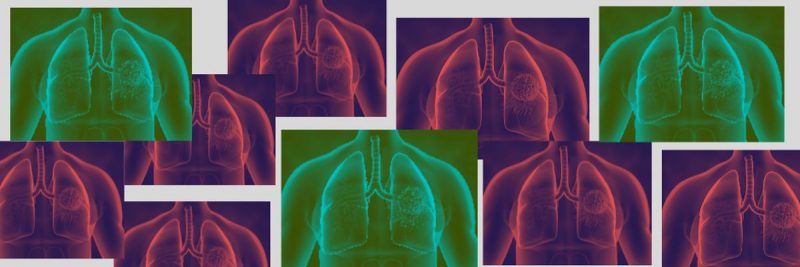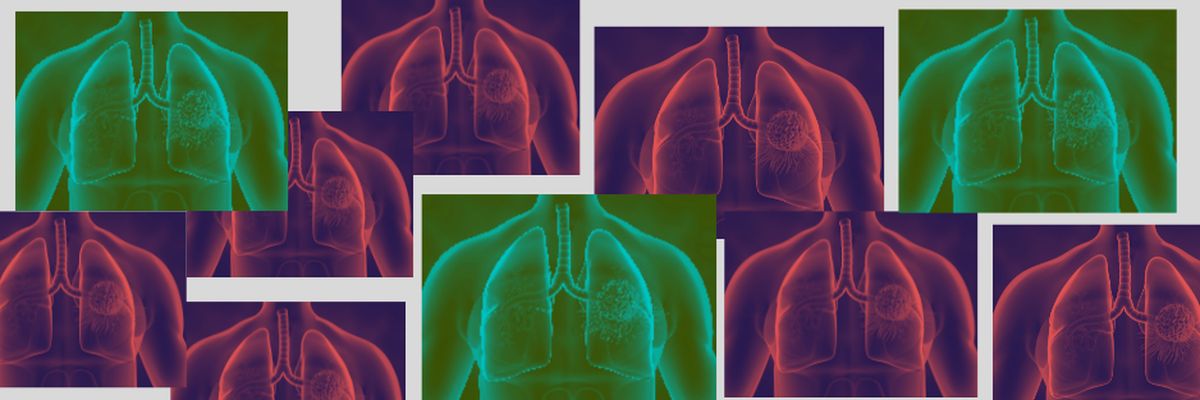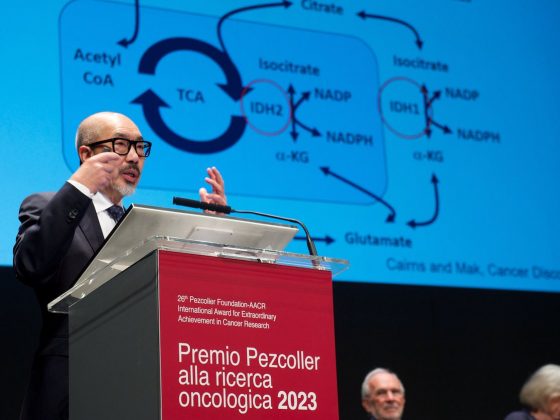Integrating a panel of four circulating protein biomarkers with a lung cancer risk model identified individuals at high risk of developing fatal lung cancer. The study published in Journal of Clinical Oncology, June 28, demonstrated how including the biomarkers in selection of candidates for screening could help distinguish people likely to develop a lethal lung cancer from those who, despite being at risk of developing lung cancer, would be likely to die from other causes.
“The test allows us to determine need for lung cancer screening on a personalised basis,” Edwin Ostrin, the corresponding author, tells Cancerworld. “It can be used to figure out how risks can be balanced – to identify those who would definitively benefit from an earlier diagnosis, and presumably earlier treatment, of lung cancer because their risk of lung cancer death outweighs their risk of death from other causes.”
Lung cancer screening saves lives – multiple trials have shown that a yearly CT scan in those at high risk for lung cancer can reduce cancer deaths by about 20%. However, it is estimated that only around 50% of diagnosed lung cancers in the US occur in individuals who are currently eligible for screening. Additionally, lung cancer screening is hampered by poor uptake – only around 5–7% of those eligible in the US undergo appropriate screening. “Another big problem with screening is that eligible individuals (those with extensive history of smoking) have competing risks of death. These people tend to get lung disease, heart disease, and other cancers and may die of these causes before dying of lung cancer, making the benefit less for early lung cancer detection,” explains Ostrin, from MD Anderson Cancer Center, Houston, Texas. Lung cancer screening, he adds, has repeatedly been shown to identify slow growing cancers that potentially could be safely observed.
The goal of the MD Anderson team has been to develop a simple pre-screening blood test that can be used to determine need for lung cancer screening, making screening much more effective. The protein test, first described in JAMA Oncology in 2018, involves four proteins: cancer antigen 125 (CA125), carcinoembryonic antigen (CEA), cytokeratin-19 fragment (CYFRA 21-1), and the precursor form of surfactant protein B (Pro-SFTPB). “Our four-marker panel represents over a decade of work. We tested over 50 markers in combination, and found that a four-protein biomarker performed very well, was replicable, as well as having the advantage of being a simple test that was rapidly deployable,” says Ostrin.
In a study published in 2022 in the Journal of Clinical Oncology, the team combined the results of the pre-diagnostic blood test with the prostate lung colorectal ovarian (PLCO)m2012 lung cancer prediction model, which predicts six-year risk of lung cancer diagnosis from a baseline questionnaire that includes information on age, race or ethnic group, education, body mass index, chronic obstructive pulmonary disease (COPD), personal history of cancer, family history of lung cancer and smoking status (current v former), intensity, duration, and quit time. For that study they showed that, compared with using the current US Preventive Services Task Force (USPSTF) screening criteria, the combined test improved the overall sensitivity from 78.5% to 88.4% and the specificity from 49.3% to 56.2%.
For the current study, the team investigated the extent to which combining the four biomarkers with the PLCOm2012 prediction model could help discriminate risk of developing lethal cancers from risk of developing less aggressive cancers, and evaluate the risk of competing diseases. Again, they used blood samples from the PLCO cancer screening trial, including 552 individuals who later developed lung cancer and 2,193 who did not. Of the 552 individuals diagnosed during the six-year study period, 70% (n=387) died from lung cancer, 18% (n=99) died of other causes, 7% (n=41) were still alive at the time of last follow-up, and 5% (n=25) did not have survival information.
For the analysis the team used two different survival models to evaluate lung cancer death versus death from other causes. The first, a cause-specific hazard ratio, modelled the rate of lung cancer death in those who had not developed competing risks, while the second took into consideration the change in risk for those with competing events, such as COPD.
Results showed that a combined four-protein test and PLCOm2012 prediction model was able to predict the risk of lung cancer death more accurately than current guidelines. “In conclusion, the 4MP [four protein test] + PLCO m2012 model offers improved means for individualized risk assessment for lethal lung cancers, compared with current USPSTF criteria. The test has potential to better select for individuals who would benefit from LDCT [low dose CT] screening,” write the authors.
The next step, says Ostrin, will be to evaluate how the combined ‘blood test plus clinical risk’ score performs in people eligible for CT screening programmes. “We are focused on working with industry partners to develop a clinical-grade assay, hopefully this year, and thus we could begin testing our blood marker prospectively,” he says.
Ultimately, Ostrin believes that introduction of the blood test could help understand if individual patients could benefit from undergoing a CT scan for early detection of lung cancer. “This includes individuals who have smoked but are currently not eligible under current guidelines for CT screening, and individuals who may be hesitant to enter a lung cancer screening programme,” says Ostrin. For those undergoing CT screening, he adds, the blood test has potential to assist with clinical decision making in the approximately 30% of individuals who have indeterminant pulmonary nodules detected.












